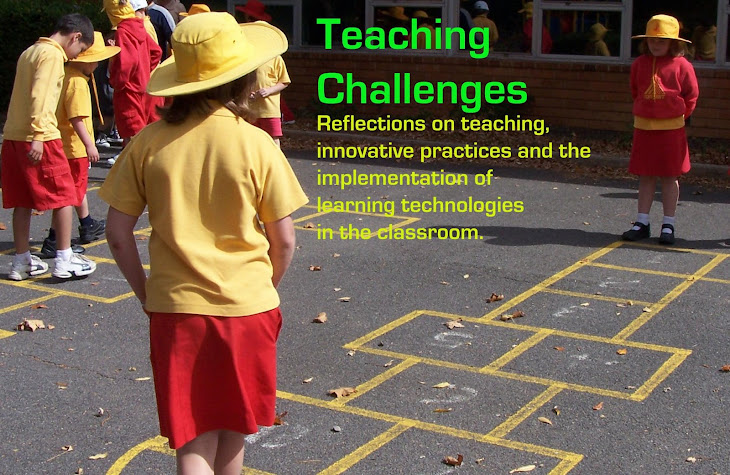It's an exciting time of year for our high potential students. The Australian STEM Video Game Challenge is now in the judging stages, the Australian Mathematics Competition was held earlier this week, Round 2 of The ASX Schools Sharemarket Game starts next week, and the Maths Olympiad and The Tournament of Minds are well underway. In addition to these, my school also runs a Writing Experience/Competition and a Poetry Recitation Competition.
Opportunities like these push students outside their comfort zone and help them discover that growth comes from facing challenges head-on. This is exactly what we want for them.
But pause for a moment. Remember the last time you faced a challenge - the kind that made you wonder if you were out of your depth. That moment of uncertainty. That fear that you might not succeed. As educators, we are quick to cheer our students into the unknown, yet we can feel the same tremble when we're the ones stepping forward. Growth is hard, and sometimes hurts. So how we can better prepare both ourselves and our students to meet those challenges?
Safe and Supportive Environment
We start by fostering a safe and supportive environment. One where all ideas are valued, errors are stepping stones, and that it's okay to say, "I don't understand." We help each other when we struggle, and celebrate questions that deepen our understanding.
When we feel safe and supported, we are more willing to take the risks that lead to growth.
Motivation
We are not all motivated by the same things. Some students thrive on competition, others would rather avoid it.
In 2024, I worked with a student on his passion project, creating a game for The Australian STEM Video Game Challenge. He lost interest after a month, claiming he didn't like competitions. All that changed however, when he went to PAX and saw what winning looked like: tickets to PAX and a hoodie featuring the winning game. He had found his motivation. I have never seen him so committed to anything before. We pushed through the tough days, where the trouble shooting seemed to go nowhere, and he learned far more than coding - time management, resilience, persistence. By the time he was done, his game was impressive and the complexity of the code blew me away. I was so proud of him when he pressed the "submit" button. For him, it was tickets and a hoodie. For me, it's personal growth. What is it for you?
If we are going to commit to something, it needs to have personal meaning for us.
Understanding "How to Play"
A lot of learning happens the first time you try something new. This is true for us as much as for our students. In my first year with The Tournament of Minds, I read the instruction manual cover to cover, but it just didn't click until I actually saw it in action. I leaned on the advice of those who had done it before.
When I judged the Spontaneous Challenge in my second year, I saw how teams could work effectively to develop their responses. Additionally, when one of our STEM teams progressed to the state and then international finals, I could identify the skills that students needed in order to succeed: STEM knowledge, teamwork, and time management - all without teacher intervention.
When we understand the game, the rules, and what success looks like, we can focus on what matters most.
Practice
Once we know what's required, we need to practise the skills. For The Maths Olympiad and The Australian Mathematics Competition, I've found that spaced practice at home builds both familiarity with question types, and capacity for problem-solving. When students can grapple with questions without the pressure to perform, they develop strategies to calm their fears and to piece together a solution step by step. In class, sharing different solutions shows there's more than one way to answer, which frees students to find the process that works for them.
When we have spaced practice to develop skills without performance pressure, we feel more confident and prepared when the moment comes.
Opportunities to Iterate
In the rush of the school year, we often skip the chance to iterate. One thing I love about the ASX Schools Sharemarket Game is that there are two rounds each year.
In the first round, students often work in small groups, just getting a feel for the market. By the second round, they are ready to race, sometimes even doing their research in advance. This year, when my students reflected on their experience, everyone wanted to return for Round 2. Their first attempt wasn't the end, but rather the starting point.
When we have opportunities to iterate, our errors become the launch pad to our success.
I'm sure this list is not exhaustive, but these are the things that stand out to me as I watch my students and reflect on the way I tackle challenges. The truth is, whether it's a STEM competition or a career step, the principles are the same: find safety, spark motivation, learn the rules, practise with purpose and try again.
What would you add?







